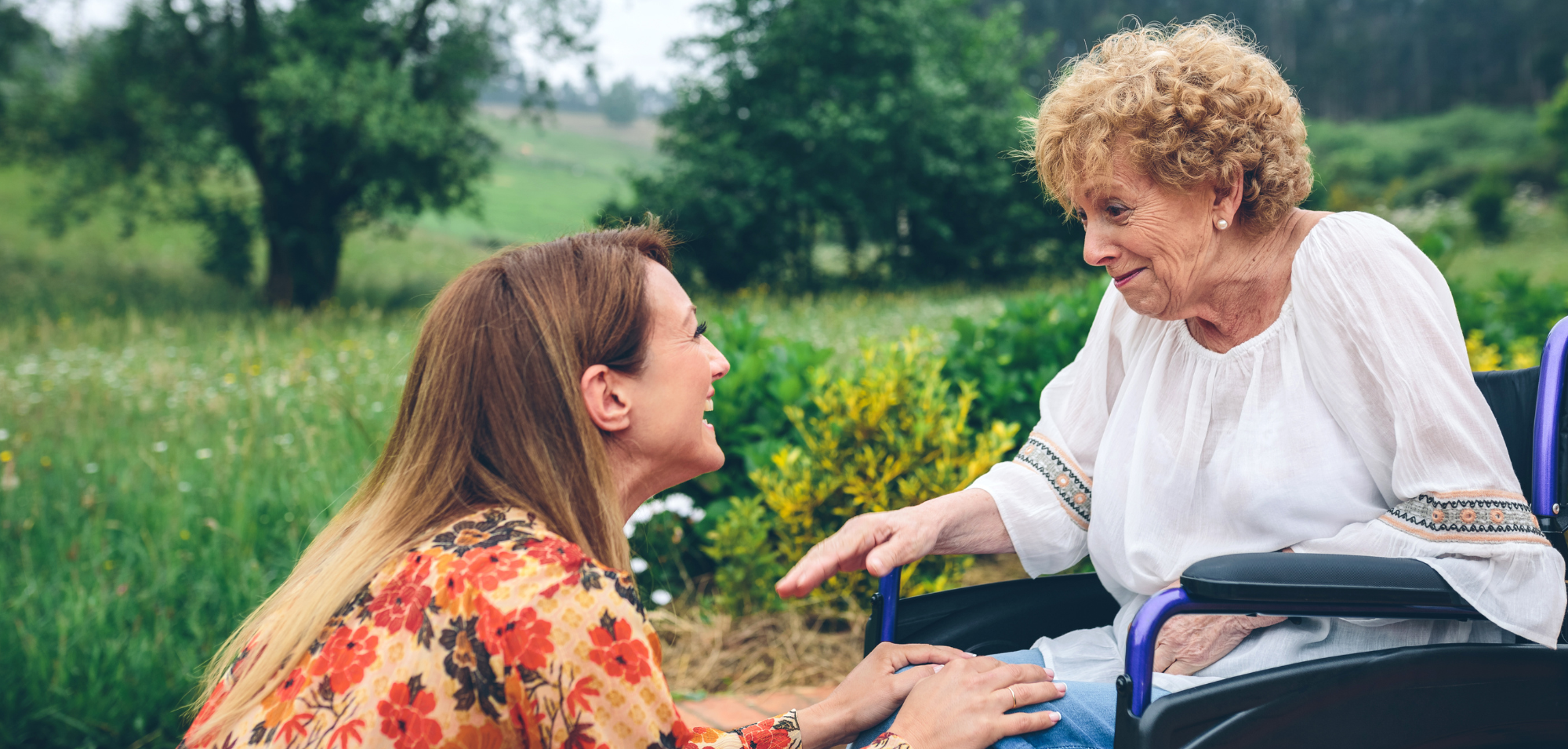
Live with Purpose - June 18, 2024
By Nada Boris
According to the Alzheimer’s Association, 6.9 million Americans age 65 and older currently live with Alzheimer’s disease. As the size of the U.S. population age 65 and older continues to grow, so will the number and proportion of Americans with Alzheimer’s or other dementias. By 2050, the number of people age 65 and older with Alzheimer’s is projected to reach 12.7 million.
Caring for someone with dementia is a reality many of us will face. My journey began in 2017 when I volunteered for Meals on Wheels, delivering meals to older adults. Since recently starting to volunteer with Goodwin Hospice, I have learned that many patients have dementia. I reached out to Jessica Fredericksen, the Director of Brain Health at Goodwin Living, for advice on how to meet older adults with dementia where they are and support them on their journey.
Jessica Fredericksen joined Goodwin Living in 2021. She leads brain training and programmatic efforts within the organization including the StrongerMemory brain health program, an effort that now reaches nearly 200 organizational partners and impacts more than 25,000 people across the United States. Jessica holds a Master of Social Work with a Gerontology concentration from Washington University in St. Louis and is a Certified Dementia Practitioner and Trainer.
When I reached out to Jessica, she immediately recommended two books: Dementia Caregiver Guide by Teepa Snow and Creative Engagement: A Handbook of Activities for People with Dementia by Rachael Wonderlin with Geri M. Lotze, Ph.D.
I benefitted from reading the Dementia Caregiver Guide, which assigns various states of dementia to different “gems” and explains how they manifest. I found it fascinating to learn that with these states (not stages) of dementia, someone can experience multiple states, even when their dementia has progressed to another stage.
It’s important to note that there is very little that can be done to alter the course of dementia once it sets in. We must learn to meet the person where they are as their dementia changes over time.
Characteristics: True Blue. People in this gem state experience normal brain function that offers organized thought, flexibility and low stress.
Helpful Tips:
Characteristics: Clear, faceted, sharp and cutting. People in this state still shine and remain capable of being independent, though they might show more rigidity. Perhaps they seem more stubborn or set in their ways. They may resist change.
Helpful Tips:
Characteristics: Green, on the go. When someone is in this state, they are no longer clear or sharp. When evidence of this state begins to show, it seems clear the person has cognitive changes. They make mistakes and do not notice or get upset when they do notice.
Helpful Tips:
Characteristics: Golden yellow mineral. People in this state of dementia are living in a moment in time, one that might not be the present reality. Often, people focus on sensations when in this state, and they might lack safety awareness.
Helpful Tips:
Characteristics: Red, hidden depths; skills are stopping. People in this gem state might show signs of both body and mind slowing down significantly. They lack fine skills in eyes, mouth, fingers and feet. They might be unable to safely use utensils or even chew food.
Helpful Tips:
Characteristics: In this state, the person we know is locked away most of the time, a beautiful pearl inside a rough outer oyster shell. While their body and mind are failing, the person will still shine through at moments, offering connection. When someone in the pearl state slips back into their shell, we need to gently let them go.
Helpful Tips:
The Gem guide helps recognize the symptoms of dementia in a relatable way, though it’s important to recognize that states are not linear.
Dementia’s progression and journey are as unique as each person’s brain, body and experiences. A person may exhibit symptoms from various levels throughout the journey and even the day. By educating ourselves, practicing patience and compassion, we’re able to meet people where they are and make what remains of their lives well worth living. And when a person loses all memory of names, faces and words, the memory of a gentle touch, tone and smile remains.
Jessica Fredericksen is the Director of Brain Health at Goodwin Living. Since joining Goodwin Living in 2021, in addition to leading brain training and programmatic efforts within the organization, Jessica has led the introduction and integration of the StrongerMemory brain health program with nearly 200 organizational partners, impacting over 25,000 people across the United States. Jessica holds a Master of Social Work with a Gerontology concentration from Washington University in St. Louis. She has also served in management and organizational support roles in the assisted living field. Jessica uses her talents and passion to help educate and innovate in the area of brain health and dementia support. She is a Certified Dementia Practitioner and Trainer.
____________________________
Nada Boris, Marketing & Communications Coordinator, joined Goodwin Living in February, 2023. She enjoys learning about the lives of residents and wishes to be like them when she grows up.
